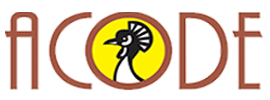- Home
- Programmes
- Projects
Strengthening Civic Engagement, Voice, Service Delivery, and Climate Justice for Improved Accountability in Uganda
Updated on: 2024-10-17 10:06:30
The project aims to strengthen civic engagement, voice, service delivery, and climate justice for improved accountability in Uganda.
This is a 4-year project that aims to strengthen civic engagement, voice, service delivery, and climate justice for improved accountability in Uganda. The project will thus enhance citizens’ participation in monitoring public expenditure and service delivery, strengthen policy, regulatory, and institutional capacity for climate justice, address concerns about climate most affected vulnerable communities, and empower youth, women, and other marginalized groups to meaningfully participate in decision-making processes.
Uganda’s socio-economic and political landscape presents a complex reality of progress and deficit in service delivery, accountability, and environmental management. While Uganda has registered an average annual growth of over 6% in the last 30 years, this progress is undermined by poor service delivery, poor public accountability, weak governance structures, and high poverty levels, with 21.4% of the population living below the poverty line. According to Transparency International’s 2023 Corruption Perception Index, Uganda scored 26 on a scale of 0-100, where 0 indicates a highly corrupt public sector and 100 a clean system, and is ranked 141 out of 180 countries globally.
As a natural resources-dependent country, Uganda’s vulnerability is further exacerbated by increased climate change shocks, ranked 14th most vulnerable country to climate change according to the ND-GAIN Index country rankings. West Nile and Karamoja regions are the most at risk, with vulnerable groups such as women, youth, and refugees being the hardest hit.
Despite introducing several policy reforms, the country still grapples with weak local government structures, limited public participation in key decision-making structures, limited civic engagement and accountability, and waning political commitment to decentralization and environmental stewardship. State actors have limited capacity to respond to service delivery concerns effectively, and the citizens do not have the civic competence to hold their leaders accountable.
Outcomes
1. Strengthened Institutional framework for enhancing citizens’ participation in monitoring of public expenditure for service delivery monitoring and handling of corruption,
2. Strengthened national and district-level policy, regulatory frameworks and institutional capacity for climate justice,
3. Climate most affected vulnerable communities have their concerns adequately addressed,
4. Youth, women, and other marginalized groups empowered and organized to meaningfully shape outcomes of decision-making processes.
Geographic Scope
The project will be implemented in 12 districts of West Nile (Adjumani, Arua, Koboko, Maracha, Terego, Madi–Okollo, Moyo, Nebbi, Yumbe, Zombo, Obongi, Pakwach) and 8 districts in the Karamoja (Kotido, Kaabong, Moroto Municipality, Nabilatuk, Abim, Moroto, Napak, Amudat, Nakapiripirit) sub-regions of Uganda. Although the target regions are West Nile and Karamoja, the project will also organize some national-level policy activities in Kampala.
Target Beneficiaries
The project has a wide range of beneficiaries both direct and indirect. Some of these include; District Local Government leaders, civil society leaders, leaders of organised groups of women and youth, cultural and traditional leaders, private sector actors, community leaders, and members of the natural resource-dependent communities. Cumulatively, the project is expected to reach over 2,025,610 people, of both direct and indirect beneficiaries.
Partners
ACODE will work with other partners to implement the project. The project has two implementing partners: West Nile Development Association (WENDA) and Karamoja Herders of the Horn (formerly Karamoja Development Forum) in the West Nile sub-region and Karamoja Sub-region respectively. The project will also collaborate with several partners at different levels. These include; District-based like-minded civil society organizations; national civil society networks; Ministry of Finance, Planning and Economic Development; Ministry of Water and Environment; Ministry of Tourism, Wildlife and Antiquities; National Planning Authority; National Environment Management Authority; and the Private Sector Foundation Uganda.
